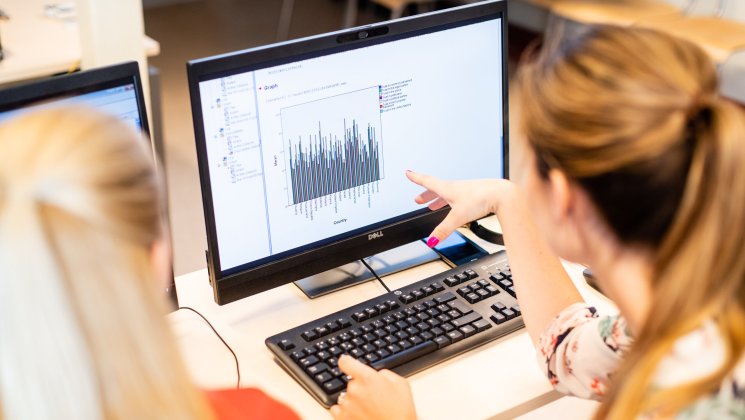-
Humanitaarteaduste ja kunstide valdkondHumanitaarteaduste ja kunstide valdkonna dekanaatJakobi 2, r 116-121 51005 Tartu linn, Tartu linn, Tartumaa EST0Ajaloo ja arheoloogia instituutJakobi 2 51005 Tartu linn, Tartu linn, Tartumaa EST0Eesti ja üldkeeleteaduse instituutJakobi 2, IV korrus 51005 Tartu linn, Tartu linn, Tartumaa ESTFilosoofia ja semiootika instituutJakobi 2, III korrus, ruumid 302-337 51005 Tartu linn, Tartu linn, Tartumaa EST0Kultuuriteaduste instituutÜlikooli 16 51003 Tartu linn, Tartu linn, Tartumaa EST0Maailma keelte ja kultuuride instituutLossi 3 51003 Tartu linn, Tartu linn, Tartumaa EST0UsuteaduskondÜlikooli 18 50090 Tartu linn, Tartu linn, Tartumaa EST0Viljandi kultuuriakadeemiaPosti 1 71004 Viljandi linn, Viljandimaa EST0Humanitaarteaduste ja kunstide valdkonna emeriitprofessorid0Humanitaarteaduste ja kunstide valdkonna emeriitdotsendid0Sotsiaalteaduste valdkondSotsiaalteaduste valdkonna dekanaatLossi 36 51003 Tartu linn, Tartu linn, Tartumaa EST0Haridusteaduste instituutJakobi 5 51005 Tartu linn, Tartu linn, Tartumaa EST0Johan Skytte poliitikauuringute instituutLossi 36, ruum 301 51003 Tartu linn, Tartu linn, Tartumaa EST0MajandusteaduskondNarva mnt 18 51009 Tartu linn, Tartu linn, Tartumaa EST0Psühholoogia instituutNäituse 2 50409 Tartu linn, Tartu linn, Tartumaa EST0ÕigusteaduskondNäituse 20 - 324 50409 Tartu linn, Tartu linn, Tartumaa EST0Ühiskonnateaduste instituutLossi 36 51003 Tartu linn, Tartu linn, Tartumaa EST0Narva kolledžRaekoja plats 2 20307 Narva linn, Ida-Virumaa EST0Pärnu kolledžRingi 35 80012 Pärnu linn, Pärnu linn, Pärnumaa EST0Sotsiaalteaduste valdkonna emeriitprofessorid0Sotsiaalteaduste valdkonna emeriitdotsendid0Meditsiiniteaduste valdkondMeditsiiniteaduste valdkonna dekanaatRavila 19 50411 Tartu linn, Tartu linn, Tartumaa ESTBio- ja siirdemeditsiini instituutBiomeedikum, Ravila 19 50411 Tartu linn, Tartu linn, Tartumaa ESTFarmaatsia instituutNooruse 1 50411 Tartu linn, Tartu linn, Tartumaa ESTHambaarstiteaduse instituutL. Puusepa 1a 50406 Tartu linn, Tartu linn, Tartumaa ESTKliinilise meditsiini instituutL. Puusepa 8 50406 Tartu linn, Tartu linn, Tartumaa ESTPeremeditsiini ja rahvatervishoiu instituutRavila 19 50411 Tartu linn, Tartu linn, Tartumaa ESTSporditeaduste ja füsioteraapia instituutUjula 4 51008 Tartu linn, Tartu linn, Tartumaa ESTMeditsiiniteaduste valdkonna emeriitprofessorid0Meditsiiniteaduste valdkonna emeriitdotsendid0Loodus- ja täppisteaduste valdkondLoodus- ja täppisteaduste valdkonna dekanaatVanemuise 46 - 208 51003 Tartu linn, Tartu linn, Tartumaa ESTArvutiteaduse instituutNarva mnt 18 51009 Tartu linn, Tartu linn, Tartumaa ESTGenoomika instituutRiia 23b/2 51010 Tartu linn, Tartu linn, Tartumaa ESTEesti mereinstituutMäealuse 14 12618 Tallinn, Harjumaa EST0Füüsika instituutKeemia instituutRavila 14a 50411 Tartu linn, Tartu linn, Tartumaa ESTMatemaatika ja statistika instituutNarva mnt 18 51009 Tartu linn, Tartu linn, Tartumaa EST0Molekulaar- ja rakubioloogia instituutRiia 23, 23b - 134 51010 Tartu linn, Tartu linn, Tartumaa ESTTartu observatooriumObservatooriumi 1 61602 Tõravere alevik, Nõo vald, Tartumaa EST0TehnoloogiainstituutNooruse 1 50411 Tartu linn, Tartu linn, Tartumaa ESTÖkoloogia ja maateaduste instituutJ. Liivi tn 2 50409 Tartu linn, Tartu linn, Tartumaa ESTLoodus- ja täppisteaduste valdkonna emeriitprofessorid0Loodus- ja täppisteaduste valdkonna emeriitdotsendid0Akadeemilise sekretäri tegevusvaldkondPersonaliosakondÜlikooli 18, ruumid 302 ja 304 50090 Tartu linn, Tartu linn, Tartumaa EST0Finantsjuhi tegevusvaldkondRahandusosakondJakobi 4 51005 Tartu linn, Tartu linn, Tartumaa EST0Kantsleri tegevusvaldkondInfotehnoloogia osakondUppsala 10 51003 Tartu linn, Tartu linn, Tartumaa EST0KantseleiÜlikooli 17 (III korrus) 51005 Tartu linn, Tartu linn, Tartumaa EST0Kinnisvaraosakond0Turundus- ja kommunikatsiooniosakondÜlikooli 18, ruumid 102, 104, 209, 210 50090 Tartu linn, Tartu linn, Tartumaa EST0Rektori tegevusvaldkondRektoraadi bürooÜlikooli 18 50090 Tartu linn, Tartu linn, Tartumaa ESTSiseauditi bürooÕppeprorektori tegevusvaldkondÕppeosakondTeaduskoolUppsala 10 51003 Tartu linn, Tartu linn, Tartumaa ESTÜliõpilaskonna bürooÜlikooli 18b 51005 Tartu linn, Tartu linn, Tartumaa EST0Õppimis- ja õpetamiskeskusLossi 36-401 51003 Tartu linn, Tartu linn, Tartumaa ESTTeadusprorektori tegevusvaldkondRaamatukoguW. Struve 1 50091 Tartu linn, Tartu linn, Tartumaa ESTGrandikeskusRaekoja plats 9, III korrus 51004 Tartu linn, Tartu linn, Tartumaa ESTArendusprorektori tegevusvaldkondEttevõtlus- ja innovatsioonikeskusNarva mnt 18 51009 Tartu linn, Tartu linn, Tartumaa EST0Loodusmuuseum ja botaanikaaedVanemuise 46 51003 Tartu linn, Tartu linn, Tartumaa EST0Rahvusvahelise koostöö ja protokolli osakond0MuuseumLossi 25 51003 Tartu linn, Tartu linn, Tartumaa EST0
"Methods of extracting keywords and topics from text collections" (Maciej Eder)
Digihumanitaaria ja infoühiskonna keskus kutsub kõiki magistrante, doktorante ja TÜ töötajaid töötubadesse "Methods of extracting keywords and topics from text collections", mida viib läbi Maciej Eder (Institute of Polish Language, Polish Academy of Sciences). Töötoad toimuvad Jakobi 2–105 arvutiklassis aegadel
- teisipäeval, 2. mail kl 12–16
- kolmapäeval, 3. mail kl 12–16
- neljapäeval, 4. mail kl 10–12
Kõigis töötubades osalemise eest on võimalik saada 1 EAP ja osalemiseks täitke palun registreerimisvorm.
---
"Methods of extracting keywords and topics from text collections"
The workshop will offer an introduction to information extraction methods from collections of written texts. It will start with a keywords analysis methodology and different methods of extracting keywords, which will be followed by a discussion on topic modeling, or a technique that allows for extracting cohorts of semantically related words from text collections. Keywords analysis in its different flavors (LL keywords, Zeta, tf-idf) allows for identifying the most relevant words in a collection of texts, or between two subcorpora, or even between two texts, by comparing particular word frequencies and determining their statistical significance. Topis modeling, on the other hand, provides a more comprehensive search for words that exhibit some semantic similarity – as defined by their textual contexts – that allows for discovering latent thematic structure of the documents in question.
The workshop will be devided into a theoretical introduction, followed by a hands-on session. The tools used include AntConc (a freeware standalone tool that implemented keywords extraction), and the R programming invironment, to perform topic modeling.
Du, K. & Dudar, J. & Schöch, C., (2022) Evaluation of Measures of Distinctiveness. Classification of Literary Texts on the Basis of Distinctive Words Journal of Computational Literary Studies 1(1). doi: https://doi.org/10.48694/jcls.102
Michel, J.-B., Shen, Y. K., Aiden, A. P., Veres, A., Gray, M. K., Pickett, J. P., Hoiberg, D., et al. (2011). Quantitative analysis of culture using millions of digitized books. Science, 331(6014): 176–82, https://www.science.org/doi/10.1126/science.1199644
Jockers, M. L. (2013). Macroanalysis: Digital Methods and Literary History. University of Illinois Press.
Paquot, M. and Bestgen, Y. (2009). Distinctive words in academic writing: A comparison of three statistical tests for keyword extraction. In Jucker, A. H., Schreier, D. and Hundt, M. (eds). Amsterdam / New York: Rodopi, pp. 247–69.
Goldstone, A. and Underwood, T. (2012). What can topic models of PMLA teach us about the history of literary scholarship?. Journal of Digital Humanities, 2(1) https://journalofdigitalhumanities.org/2-1/what-can-topic-models-of-pmla-teach-us-by-ted-underwood-and-andrew-goldstone/.
"Methods of extracting keywords and topics from text collections" (Maciej Eder)
Digihumanitaaria demopäeval tutvustati üliõpilastele digihumanitaaria kõrvaleriala
DIGIHUMi ettekanne: Andra Siibak


